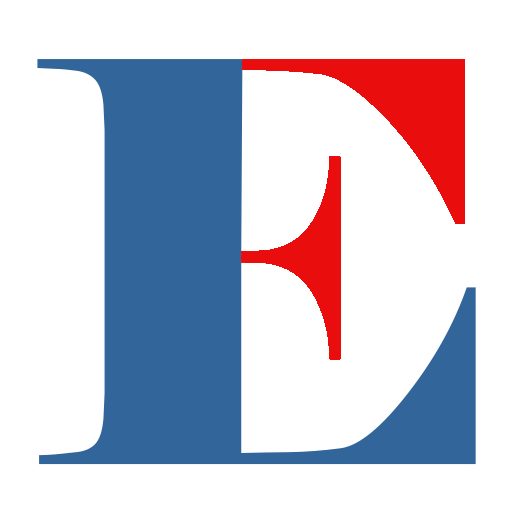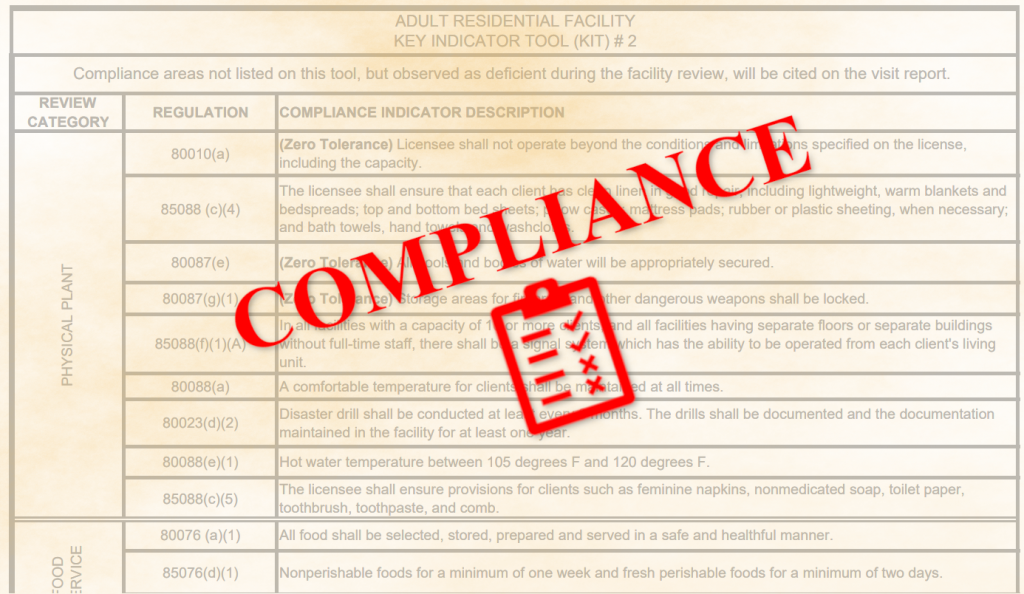The California Department of Social Services (“CDSS”) licenses Adult Residential Facilities (“ARF”s) in California. Part of CDSS’ responsibilities include performing site visits to licensed facilities and citing them for any deficiencies. On CDSS’ website, the department publishes data regarding the most commonly cited deficiencies for every calendar year. However, the most recently produced document posted for ARFs is from 2018. Working directly with CDSS, Eliav Legal has obtained more recent data from 2019 that is not yet publicly available on CDSS’ website. Here are our takeaways:
The biggest category of deficiencies for ARFs are those pertaining to Buildings and Grounds. This is not a new trend as this category has typically accounted for nearly one-fifth of the deficiencies for the past several years. More specifically, failure to keep the facility “clean, sanitary and in good repair at all times” was the most common deficiency for 2016, 2017, 2018, and 2019 where this single deficiency accounted for 12- 14% of all deficiencies annually. The other common deficiency in this category is the failure to lock up dangerous chemicals such as disinfectants and cleaning solutions. A new issue that was cited in 2019 with some regularity is failure to take measures to keep the facility free of flies and other insects. Another reoccurring issue for ARFs falls under the category of “Furniture, Fixtures, Equipment, and Supplies” since typically 6% of the citations arise from a failure to keep the hot water temperature within the mandated range. It appears that by managing the cleanliness of the building and keeping it in good repair, ARF operators would be able to avoid nearly one-fifth of the most commonly cited deficiencies.
The next major categories were Health Related Services and Personal Rights, accounting for 7% of the most commonly cited deficiencies in 2019, respectively. The solution for these problems rests with adopting the right policies, hiring qualified individuals, and conducting regular training of those individuals as well as revisiting policies and procedures regularly for necessary updates.
Here is a breakdown of the most common deficiencies cited for ARFs in 2019:
Deficiency | Category | Percentage of total deficiencies for all visits |
The facility shall be kept clean, sanitary and in good repair at all times. | Buildings and Grounds | 12% |
Disinfectants, cleaning solutions, poisons, and other items that could pose a danger to clients shall be inaccessible. | Buildings and Grounds | 5% |
The licensee shall take measures to keep the facility free of flies and other insects. | Buildings and Grounds. | 2% |
Hot water temperature controls shall be maintained to automatically regulate the temperature of hot water used by residents to attain a temperature of not less than 105 degree F (41 degree C) and not more than 120 degree F (49 degree C). | Furniture, Fixtures, Equipment, and Supplies | 6% |
Staff providing care and supervision shall receive first aid training from qualified agencies including but not limited to the American Red Cross. | Health Related Services | 3% |
Clients shall be assisted as needed with self-administration of prescription and nonprescription medications. | Health Related Services | 2% |
Medication shall be kept in a safe and locked place that is not accessible to persons other than employees responsible for the supervision of the centrally stored medication. | Health Related Services | 2% |
Each client has the right to be free from corporal or unusual punishment, infliction of pain, humiliation, intimidation, ridicule, coercion, threat, mental abuse, or other actions of a punitive nature, including but not limited to: interference with the daily living functions, including eating, sleeping, or toileting; or withholding of shelter, clothing, medication or aids to physical functioning. | Personal Rights | 2% |
Each client has the right to be accorded dignity in his/her personal relationships with staff and other persons. | Personal Rights | 2% |
The licensee shall provide care and supervision as necessary to meet the client’s needs. | Responsibility for providing care and supervision | 2% |
The licensee shall ensure that a separate, complete, and current record is maintained in the facility for each client. | Client Records | 2% |
Eliav Legal works with ARFs and other residential facilities to identify and eliminate compliance issues. Contact us today for a free no-obligation consultation.
Free Consultation
This article is intended for informational purposes only and is not legal advice or a substitute for consultation with a licensed legal professional in a particular case or circumstance. Readers should not act upon information in this article without professional counsel. This material may be considered advertising under certain rules of professional conduct.

